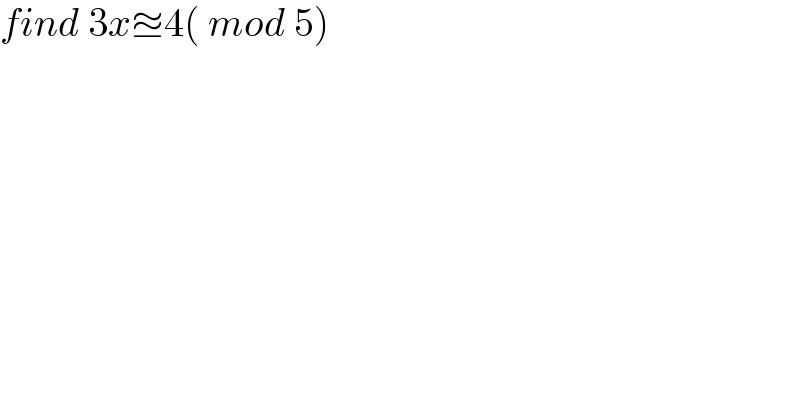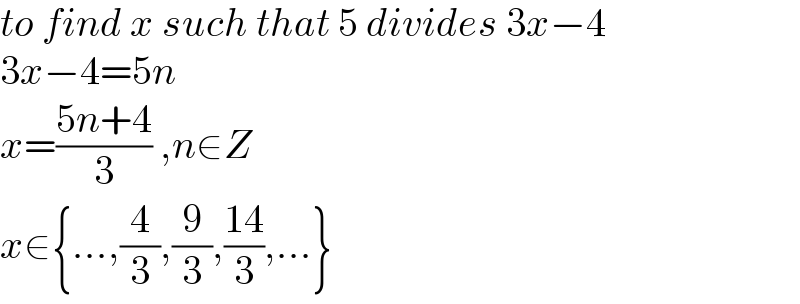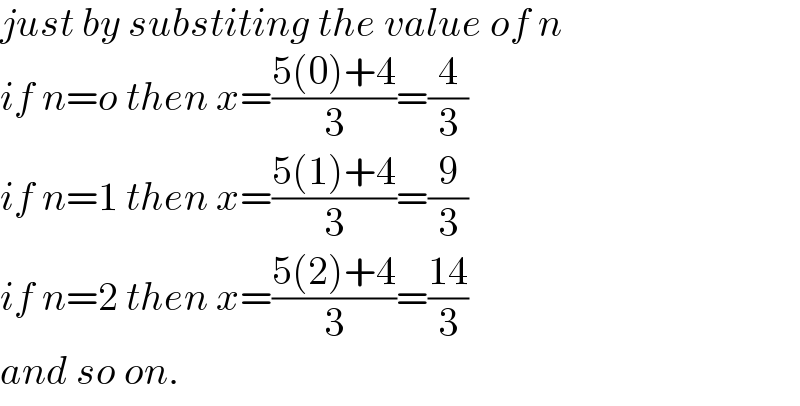
Question and Answers Forum
Question Number 146408 by tabata last updated on 13/Jul/21

Commented by tabata last updated on 13/Jul/21

Commented by tabata last updated on 13/Jul/21

Commented by otchereabdullai@gmail.com last updated on 16/Jul/21

Answered by gsk2684 last updated on 13/Jul/21

Commented by tabata last updated on 13/Jul/21

Commented by gsk2684 last updated on 13/Jul/21

Answered by Rasheed.Sindhi last updated on 13/Jul/21

Answered by physicstutes last updated on 13/Jul/21
![3x ≡ 4 (mod 5) ⇒ 3x = 5y + 4 where y ∈Z so we solve the linear diophantine equation 3x−5y = 4 5 = 1(3) + 2 3 = 1(2) + 1 2 = 2(1)+0 Reversing the steps in euclids algorithm just done above, 1 = 3−1(2) = 3−1[5−1(3)] = 3−1(5)+1(3) = 2(3)−1(5) = 3[5−1(3)]−1(5) = −3(3)−2(5) ∵ x = 3 is a good solution other solutions are such that x ≡ 3 (mod 5)](Q146424.png)
